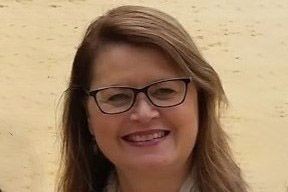
Leadership Series - Prioritising the people side of change
Shari Walton, Organisational Development Consultant
Prioritising the people side of change will help to create a psychologically healthy work environment where employees feel comfortable asking for help, sharing suggestions informally, or challenging the status quo without fear of negative social consequences. An effective team values psychological safety as much as physical safety and performance standards. When this is the experience of individuals and teams, organisations are able better to innovate, leverage the benefits of diversity and adapt well to change. A psychologically healthy workplace is a precursor to adaptive, innovative practices, which is very much needed at the individual, team, and organisation levels in today’s rapidly changing environment.
Staying in your comfort zone can feel calming and reassuring in the short term, but it’s not a long-term solution for success. Challenging the status quo can support transformation, alleviate anxiety, broaden horizons and minimise stress.
Recent research suggests that organisations can foster a healthy and successful workplace by supporting and developing leaders to demonstrate specific leadership behaviours that help their employees thrive through change.
Some examples of positive leadership behaviour include:
- Acting as catalysts for change
- Empowering and enabling other leaders on the team
- Role modelling and reinforcing the behaviours they expect from the rest of the team
- Create a positive team climate where all contributions are valued, people care about each other’s wellbeing and feel involved in influencing the team ground rules and values.
- Introducing sponsorship to promote the success of others rather than yourself
- Demonstrate situational humility and develop a personal growth mindset and curiosity.
As leaders help their team develop through demonstrating the above behaviours the benefits individuals may experience as a result include greater confidence, improved flexibility, higher levels of motivation, increased skills and a more compassionate approach.
At AccessEAP we have a range of learning and development modules as well as individual and integrated wellbeing services to assist you in managing your psychosocial risks. Reach out to us on 1800 818 728 or speak to your main contact at AccessEAP to chat about how we can help.
Shari Walton is a highly skilled senior Organisation Development Consultant committed to helping organisations thrive through creating mentally healthy workplaces. She has extensive experience designing, developing, and implementing a broad range of Leadership Development, Talent Management, and other Learning and Organisation Development interventions that drive change and support individual, team, and business success.
Shari has over 30 years’ experience in the organisation development field across Finance, IT and Higher Education sectors. This experience is complemented with formal qualifications in Human Resources, Learning & Development, Executive Coaching, along with a Graduate Diploma in Communication Management, and a Diploma in Holistic Wellness Coaching.


